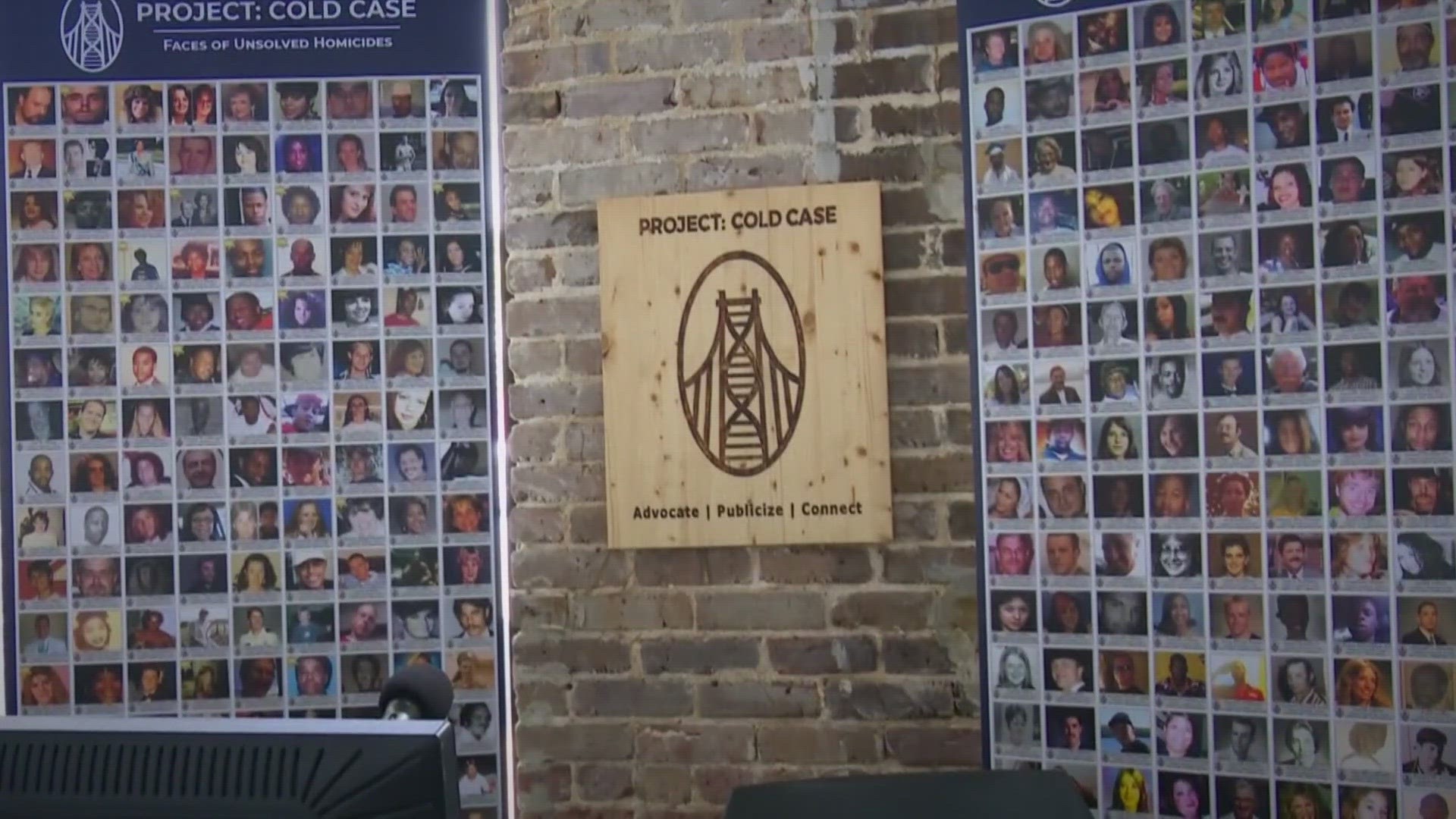JACKSONVILLE, Fla. — When a person is murdered, the victim's family often holds an expectation that the case will be solved. But what if it isn't?
There are over 1,500 cold cases in Jacksonville. When a case goes cold, it can feel like hope is lost, but with modern technology, nationally cold cases are being solved at a record rate.
A case file becoming dusty on a shelf is every cold case family's fear. So how do you get that case off the shelf and onto the desk of an investigator?
"They [victim's families] don't know who to call, nobody has ever walked them through the process, nobody has ever shared and given them confidence and given them assistance with the right questions to ask and that empowers them," says Ryan Backmann, the founder of Project: Cold Case.
Advocating for cold cases is Ryan Backmann's mission. He started Project: Cold Case in Jacksonville in 2015 after the murder of his own father at a construction site in 2009 which remains unsolved.
Recently, Project: Cold Case with the families of homicide victims Carol Barrett and Annie Mae Ernst, advocated to the Jacksonville Sheriff's Office for the cases to be re-examined. They did and in just the last month it was announced both cases are considered resolved and closed.
Backmann says he understands the frustrations families of unsolved homicides feel and has some suggestions. First, call the investigative agency and ask for the detective assigned to your loved one's case.
"That's where you find out if a case is active or not and if it's not then we help them with the steps to have it assigned to a detective," tells Backmann.
Second, maintain communication with law enforcement and set follow up dates. He says families also need to understand not all agencies have a dedicated cold case unit.
"So the investigator may be working active, hot cases as well. So we encourage the families to ask the detective, how long do you think it will take the detective to review that case," explains Backmann.
Third, make your goal bringing the case up to current investigative standards. So ask if there is any evidence that can be retested or tested with new technology.
We spoke with Barrett's family and as they begin to move forward with some resolution to her case, her niece urges other families to not give up.
"Ryan's organization, Project: Cold Case, has been amazing. Don't give up, as painful as it can be and it feels useless, nobody is watching and nobody is listening, people are and the right person will eventually get it," said Claire Gilligan, Carol Barrett's niece," but if you don't keep that voice going, its just going to disappear."
Ryan Backmann also says having a support network is crucial, so Project: Cold Case offers support group meetings twice a month for families of unsolved homicides.
For more on Project: Cold Case visit www.projectcoldcase.org.

